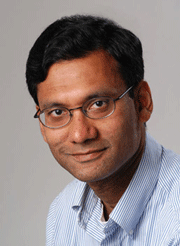GlobalSIP 2013 Symposium on:
Cyber-Security and Privacy
[Download the PDF Call for Papers]
The rise of modern networking technology has resulted in our critical dependency on secure and dependable delivery of trustworthy information. At the same time, the omnipresence of information has increased the potential for intruders to affect devastating actions on and within the network and to extract intelligence from it. As such, we are posed with cyber security threats and privacy challenges that require new scientific and technological solutions catering to contemporary ubiquitous networking paradigms such as mobility, distributed control and application independence.The Signal and Information Processing (SIP) Community will play a key role in providing the scientific foundations of cyber security and privacy, and in the development of novel sophisticated mathematical tools and practical algorithms for analysis and mitigation of threats. This symposium will provide a venue for bringing together researchers from the SIP community as well as other related fields to exchange and explore ideas and state-of-the-art approaches to design superior technologies and solutions for secure complex networks of tomorrow.
Submissions of at most 4 pages in two-column IEEE format are welcome on topics including:
- Analysis and mitigation of side channels
- Attacks on privacy and privacy technologies
- Fingerprinting and watermarking
- Information-theoretic security
- Network security and intrusion detection
- Privacy challenges in large data
- Secure computation framework
- Traffic analysis
- Biometric Security, Privacy and Authentication
- Machine Learning in Security
Keynote Speakers

Wade Trappe, Rutgers University, A Medium for Information Extraction and Exploitation
Wireless networks are becoming prolific, and the implication is that they create imprints on our environment-- new sources of information that can be examined to arrive at a variety of societal benefits and societal threats. The wireless medium allows for the creation of many new services, such location-based services as well as new forms of security services. On the other hand, it is now possible to examine the information traversing the wireless to infer information that might have previously been considered inaccessible. This talk will examine the broad implications associated with pervasive wireless connectivity, ranging from the new types of applications that can be created by tapping into the wireless fabric to new types of security and privacy threats unique to the wireless medium. After completing a high-level survey of such issues and opportunities, the talk will turn to a detailed examination of security solutions that may be devised at the physical layer. Such physical layer security activity has pulled from a broad variety of traditional research areas, ranging from traditional cryptographic security to information theoretic security, from theoretical efforts focused on understanding fundamental limits to systems efforts targeted at proving that the proposed theories can in fact be realized in real systems. The talk will examine how physical layer methods can be leveraged to develop authentication and confidentiality services. The talk will present some of the basic theories being used, as well as present systems-validation efforts that have been conducted. Lastly, we will comment on some of the potential weaknesses that exist in physical layer security and, by doing so, highlight directions for ongoing research.
Wade Trappe is a Professor in the Electrical and Computer Engineering Department at Rutgers University, and Associate Director of the Wireless Information Network Laboratory (WINLAB), where he directs WINLAB’s research in wireless security. He has served as PI or co-PI on several NSF projects involving security and privacy for sensor networks, physical layer security for wireless systems, a security framework for cognitive radios, the development of wireless testbed resources (the ORBIT testbed, www.orbit-lab.org), and new RFID technologies. Prof. Trappe led a DARPA initiative into validating and prototyping physical layer security mechanisms, an Army Research Office project on the theory of physical layer security, and is currently leading an Army CERDEC project on cognitive radio networks and MIMO communications. He has developed several cross-layer security mechanisms for wireless networks, jamming detection and jamming defense mechanisms for wireless networks, and has investigated privacy-enhancing routing methods. He has published over 100 papers, including five best papers awards (two in media security, one in Internet design, one in cognitive radio systems and one in mobile computing). His papers have appeared in numerous IEEE/ACM journals and premier conferences, spanning the areas of signal processing and security. His experience in network security and wireless spans over 15 years, and he has co-authored a popular textbook in security, Introduction to Cryptography with Coding Theory, as well as several notable monographs on wireless security, including Securing Wireless Communications at the Physical Layer and Securing Emerging Wireless Systems: Lower-layer Approaches. Professor Trappe has served as an editor for IEEE Transactions on Information Forensics and Security (TIFS), IEEE Signal Processing Magazine (SPM), and IEEE Transactions on Mobile Computing (TMC). He served as the lead guest editor for September 2011 special issue of the Transactions on Information Forensics and Security on “Using the Physical Layer for Securing the Next Generation of Communication Systems.” and also served IEEE Signal Processing Society as the SPS representative to the governing board of IEEE TMC.

Kannan Ramchandran, University of California, Berkeley, Privacy and Security in the Big Data Era: A Signal Processing Perspective
We will overview some of the exciting research challenges and opportunities related to privacy and security in this age of Big Data. Highlighted research areas will include distributed storage systems (the so-called storage cloud) and public databases used for private search and information retrieval. We will view these through a unique coding and signal processing lens, and highlight some interesting research challenges.
Kannan Ramchandran is a Professor of Electrical Engineering and Computer Science at the University of California at Berkeley, where he has been since 1999. He was on the faculty at the University of Illinois at Urbana-Champaign between 1993 and 1999. Prof. Ramchandran is a Fellow of the IEEE and has won numerous research awards. His research interests span the areas of signal and image processing, coding and information theory, and large-scale distributed systems.

Adam Smith, Pennsylvania State University, Differential Privacy through the Lens of Information Theory (as seen by a cryptographer)
Consider an agency holding a large database of sensitive personal information -- medical records, census survey answers, web search records, or genetic data, for example. The agency would like to discover and publicly release global characteristics of the data (say, to inform policy and business decisions) while protecting the privacy of individuals' records. This problem is known variously as "statistical disclosure control", "privacy-preserving data mining" or simply "database privacy".
In this talk, I will describe differential privacy, a notion that seeks to formulate and satisfy rigorous definitions of privacy for such statistical databases. Satisfactory definitions had previously proved elusive largely because of the difficulty of reasoning about "side information" -- knowledge available to an attacker through other channels. Differential privacy provides a meaningful notion of privacy in the presence of arbitrary side information. I will sketch some of the basic techniques for designing differentially private as well recent results on differentially private statistical analysis and learning.
Along the way, I will highlight how information-theoretic perspectives have informed research so far on this topic.
Adam Smith is an associate professor in the Department of Computer Science and Engineering at Penn State, currently on sabbatical at the Hariri Institute at Boston University. His research interests lie in cryptography, privacy and their connections to information theory, quantum computing and statistics. He received his Ph.D. from MIT in 2004 and was subsequently a visiting scholar at the Weizmann Institute of Science and UCLA. In 2009, he received a Presidential Early Career Award for Scientists and Engineers (PECASE).
Paper Submission
Submit papers of at most 4 pages in two-column IEEE format through the GlobalSIP website at http://www.ieeeglobalsip.org/Papers.asp. All papers (contributed and invited) will be presented as posters.
Important Dates
| Paper Submission Deadline | June 15, 2013 |
| Review Results Announce | July 30, 2013 |
| Camera-Ready Papers Due | September 7, 2013 |